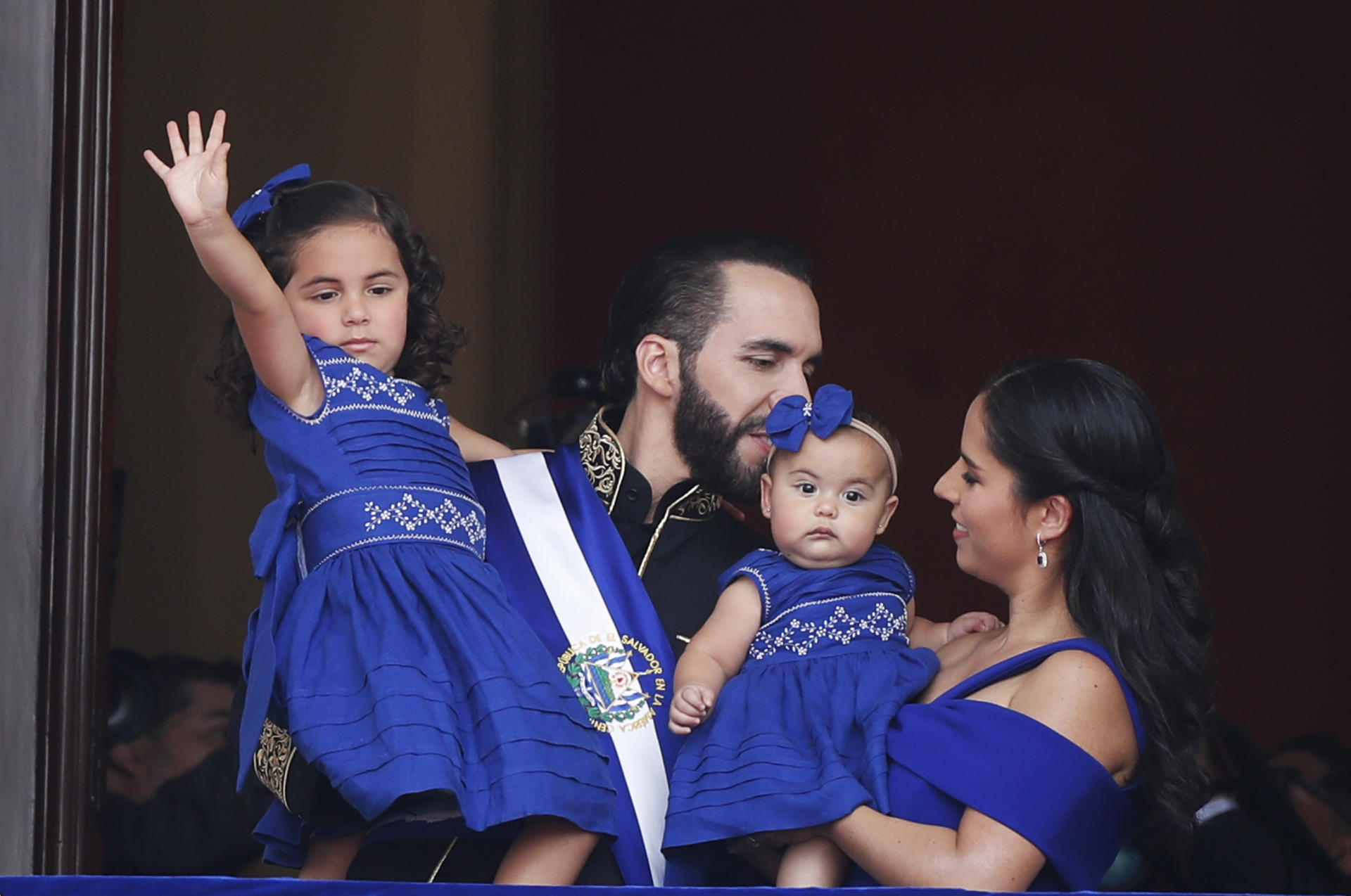In an event full of symbolism and under the watchful eye of the international community, Nayib Bukele assumed his second presidential term in El Salvador. The ceremony, held in the emblematic National Palace, was attended by world leaders such as King Felipe VI of Spain, the president of Argentina, Javier Milei, and the Ecuadorian president Daniel Noboa.
The military parade, a first for inaugurations in the Salvadoran democratic era, added a touch of solemnity. The cannons boomed as hundreds of soldiers marched with precision. Bukele, accompanied by his family, watched smiling from the box.
“We swear to unconditionally defend our national project, following each step to the letter, without complaining, asking for God’s wisdom so that our country is blessed again with another miracle and we swear to never listen to the enemies of the people.” Bukele proclaimed.
In his speech, the president-elect of El Salvador celebrated his administration’s success in security.
“This is the most important moment in our recent history. Finally, we conquered fear and we are a free country,” he stated, highlighting his fight against the gangs.

He compared the country’s situation to that of a patient who has overcome cancer and now faces new stages of recovery.
“El Salvador was a sick patient and we have cured him,” declared Bukele.
He now promised to focus on the economy, after addressing the urgency of security.
“Now, that we have fixed the most urgent thing, which was security, we are going to focus squarely on the important problems, starting with the economy. In this new treatment to heal the economy, perhaps we also have to take bitter medicine,” the president warned, and highlighted the need for joint efforts between the government and citizens.
Bukele’s re-election has not been without controversy. The Constitution of El Salvador prohibits a second consecutive term, and the last time a Salvadoran president was re-elected in a similar way was during the dictatorship of Maximiliano Hernández Martínez (1931-1944), he told Efe.

Despite criticism, Bukele continues to have broad popular support.
“He is the president, he has the authority and can make the decisions,” Félix López, one of his followers present in the square, told the news agency.
In his speech, Bukele reiterated his commitment to security and criticized the opposition, without giving specific announcements about possible reforms. “We have the enormous task of protecting our legacy like a lion,” he said.
The Salvadoran president called for unity and collective effort to face economic challenges.
Antony Blinken, Secretary of State of the United States, congratulated Nayib Bukele and expressed the desire to strengthen collaboration between both countries. The US official stressed the importance of working together for an efficient government, citizen security with due process, inclusive prosperity and respect for human rights.

Since March 2022, the country has been under an emergency regime aimed at combating gangs, resulting in the arrest of approximately 80,000 alleged gang members.
And, although the security measures implemented by Bukele have led to a significant reduction in violence, El Salvador faces serious economic challenges.
Extreme poverty has doubled since 2019, affecting 170,000 households in 2023, and public debt has reached $30 billion. Sectors such as agriculture and industry have fallen by 2% and 9%, respectively, in the last five years.
The ceremony concluded with cheers from the crowd, who chanted “Bukele forever.” Despite the controversy, the investiture marks a new chapter in the history of El Salvador, with promises of change and renewed hope for many of its citizens.
Keep reading:
• Daniel Noboa presented his first assessment six months into his government: “We will not go back”
• Daniel Noboa is the most popular South American president, followed by Javier Milei and Luis Lacalle Pou
• “Against all odds”: Nayib Bukele compared his election to that of the elected president of Panama
